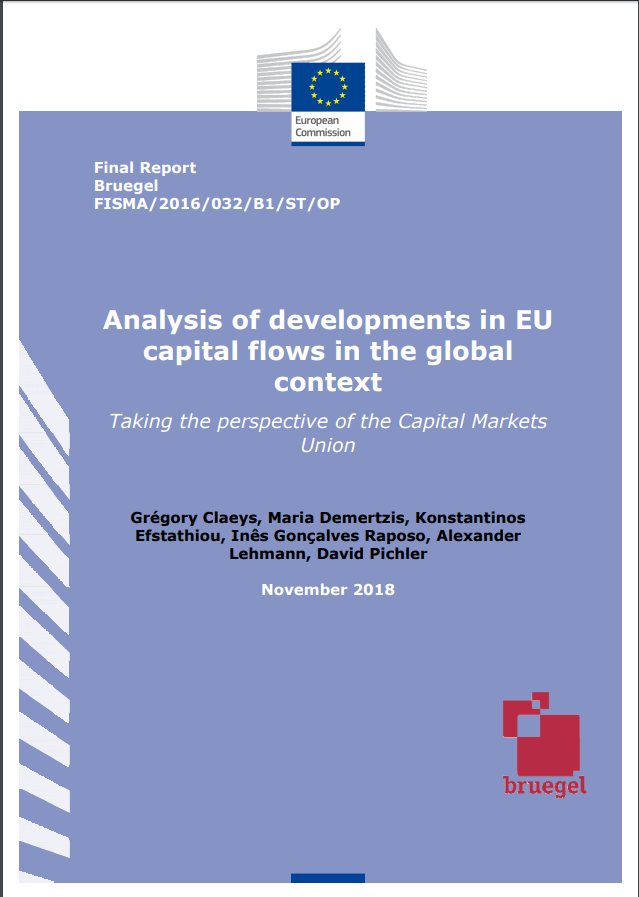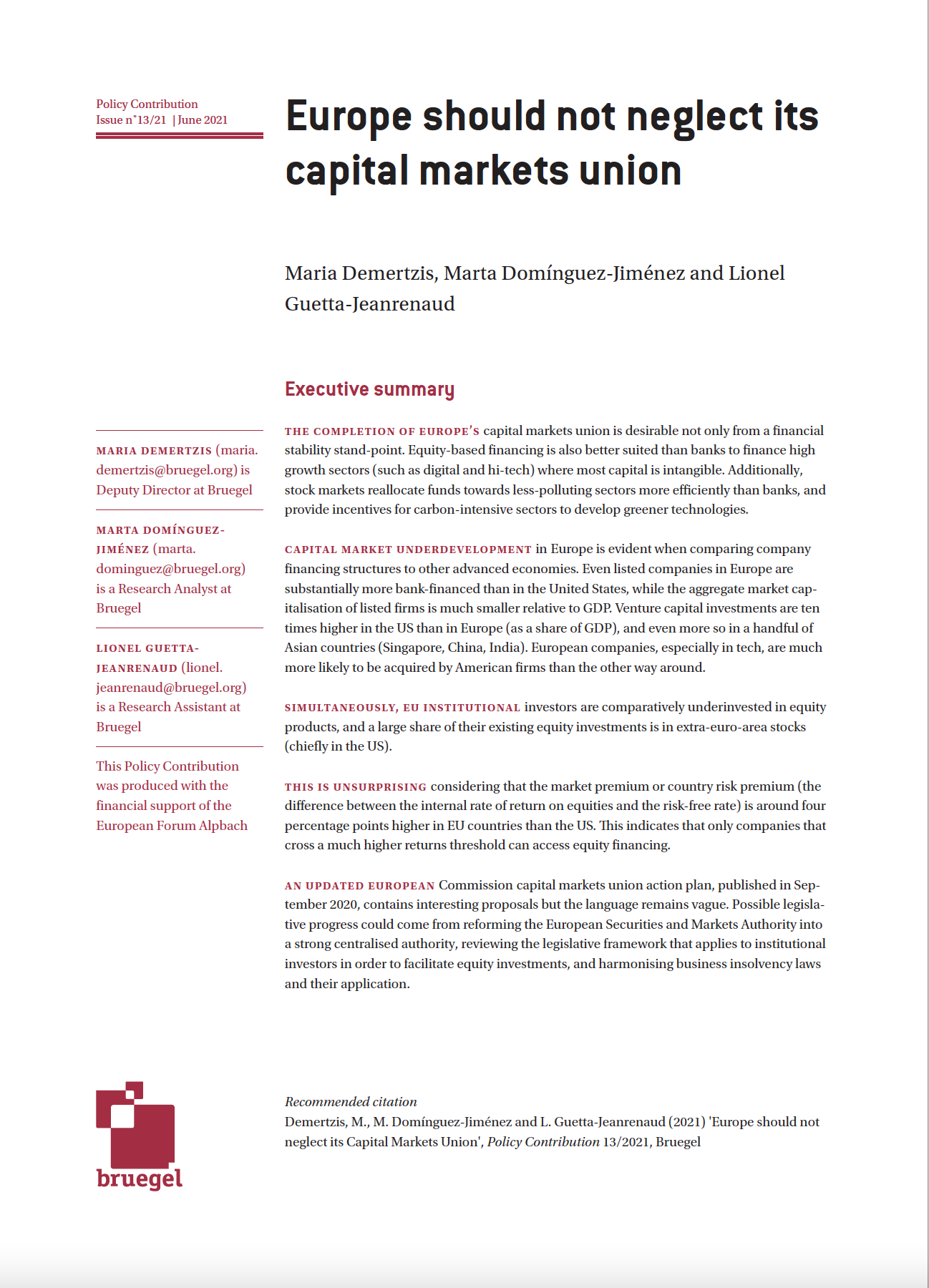External Publication
Analysis of developments in EU capital flows in the global context
The monitoring and analysis of capital movements is essential for policymakers, given that capital flows can have welfare implications. This report, commissioned by the European Commission’s Directorate-General for Financial Stability, Financial Services and Capital Markets Union, aims to analyse capital movements in the European Union in a global context.
This material was originally published in a study commissioned by the European Commission’s Directorate-General for Financial Stability, Financial Services and Capital Markets Union. The opinions expressed in this document are the sole responsibility of the authors and do not necessarily represent the official position of the European Commission. The study is available on the European Commission’s webpage.
©European Union, 2018
The aim of this report, like the four reports that preceded it, is to analyse capital movements in the European Union in a global context. The monitoring and analysis of capital movements is essential for policymakers, given that capital flows can have welfare implications. Free movement of capital can enhance welfare if it channels savings towards productive use, but in crisis times, reliance on capital flows can also be a source of vulnerability if those flows transmit shocks across borders and disrupt local financial systems, with far-reaching spillovers into the real economy.
The first two sections are devoted to the monitoring of developments in international capital flows as well as effective and nominal exchange rates. We do not repeat our review of capital flows’ key theoretical aspects flows from previous reports (Darvas et al. 2015, 2016, 2017 and Claeys et al. 2018), but get right into an analysis of global capital flows.
Section 2 presents trends from a global perspective, focusing on large economies and groups of countries that are decisive for the overall picture. We combine up-to-date evidence from balance-of-payments statistics on transactions and stocks of financial assets with an analysis of policy developments, exchange rate movements and current events. We also analyse more closely the groups’ current account focusing on the contributions of trade (goods and services) and income balances (primary and secondary).
Section 3 focuses on Europe. While we continue to focus on the euro area because of its unique characteristics, we also pay attention to non-euro area EU countries. However, instead of reporting data for all EU Member States individually, we only analyse the biggest five euro-area countries (France, Germany, Italy, the Netherlands and Spain) and smaller economies with distinct economic structures (Cyprus, Ireland, Luxembourg and Malta). Other countries are combined into five groups (euro area Central Eastern European countries, euro area creditors, euro area debtors, non-euro area Central Eastern European countries and non-euro area Nordics) to facilitate the recognition of key tendencies across the EU. We analyse the different capital flow patterns and developments in international investment positions, including their compositions. Furthermore, we highlight the contributions of different sectors (corporates, households, public) to the current account evolution.
Finally, section 4 reviews the potential of greater equity funding, in particular of private equity; assesses how, following the tightening of bank lending conditions and in the context of still high debt levels, European enterprises have accessed external equity finance; and reviews the country-specific determinants of access to private equity that lie in legal and regulatory regimes.






